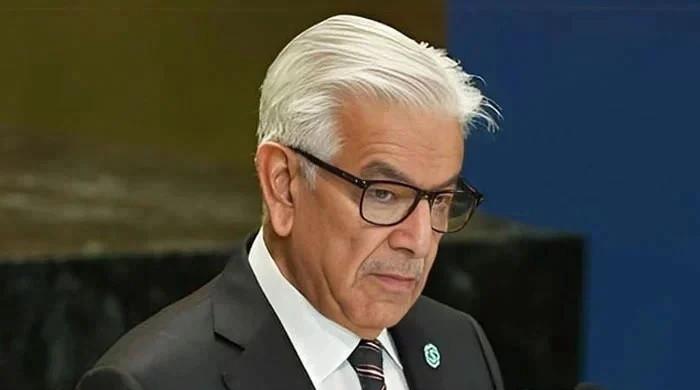
Defence Minister Criticizes Afghan Regime's Double Game Amid Border Tensions
In a recent statement, Defence Minister Khawaja Asif raised concerns about the Taliban-led interim government in Afghanistan, accusing it of engaging in a "double game" amid rising border tensions. His comments highlight the complexities of the current geopolitical landscape and the challenges faced by neighboring countries in dealing with an uncertain regime that oscillates between hostility and calls for dialogue.
Understanding the Context
The relationship between Afghanistan and its neighboring countries, particularly Pakistan, has historically been fraught with tension. The Taliban's return to power in August 2021 has further complicated these dynamics. Asif's remarks come at a time when border skirmishes and diplomatic strains are prevalent, prompting a need for clarity and stability in the region.
The 'Double Game' Accusation
During his address, Defence Minister Asif pointed out the contradictory behavior of the Afghan government. On one hand, it has issued threats that escalate tensions; on the other hand, it has extended calls for dialogue. This duality raises questions about the Taliban's intentions and the sincerity of its overtures for peace.
Asif's comments reflect a growing frustration with the Afghan regime, emphasizing that such mixed signals undermine trust and complicate diplomatic efforts. He expressed that for meaningful dialogue to occur, there must be a consistent and genuine approach from the Afghan leadership.
The Importance of Dialogue
Dialogue is crucial for maintaining peace and stability in the region. While the Taliban's calls for negotiations may appear positive on the surface, they must be matched by a commitment to cease hostilities and respect international norms. The Defence Minister's critique serves as a reminder that for any diplomatic engagement to be fruitful, it must be rooted in honesty and transparency.
#
Border Tensions: The Current Situation
The border between Afghanistan and Pakistan has been a flashpoint for conflict, with various incidents reported over the past few months. These tensions are exacerbated by the Taliban's military posture and its management of border security. Asif's remarks come as part of a broader assessment of the security situation, which has seen an uptick in clashes and confrontations along the frontier.
The Role of International Community
The international community has a significant role to play in facilitating dialogue and ensuring that both parties adhere to peace agreements. As tensions rise, it is imperative that external actors encourage diplomacy and discourage aggressive posturing. The involvement of international organizations and neighboring countries can help mediate discussions and foster a climate of cooperation.
FAQs
What does the term 'double game' mean in this context?
In this context, 'double game' refers to the Afghan government's contradictory behavior—issuing threats while simultaneously calling for dialogue. This inconsistency creates confusion and undermines trust in their intentions.
Why are border tensions a significant issue between Afghanistan and Pakistan?
Border tensions are significant due to historical conflicts, territorial disputes, and the presence of militant groups that operate across the border. These tensions can lead to violent confrontations and impact regional stability.
What steps can be taken to improve relations between Afghanistan and its neighbors?
Improving relations requires transparent communication, mutual respect, and a commitment to dialogue. Both parties must engage in confidence-building measures and seek the assistance of international mediators to facilitate discussions.
How does the international community influence Afghan-Pakistani relations?
The international community can influence relations through diplomatic pressure, mediation efforts, and economic incentives. By encouraging dialogue and providing a platform for discussions, external actors can help de-escalate tensions.
What are some of the challenges facing the Taliban-led government in Afghanistan?
The Taliban government faces numerous challenges, including economic instability, international isolation, internal dissent, and the need to manage relationships with neighboring countries. These factors complicate their ability to govern effectively and engage in diplomacy.
Conclusion
As Defence Minister Khawaja Asif aptly pointed out, the Taliban-led Afghan government's dual approach of threatening and calling for dialogue presents a significant challenge in fostering peace and stability in the region. The complexities of border tensions require a thoughtful and coordinated response from all stakeholders, including neighboring countries and the international community. Moving forward, a commitment to genuine dialogue and consistent behavior will be essential in navigating these turbulent waters.
Tags
National
